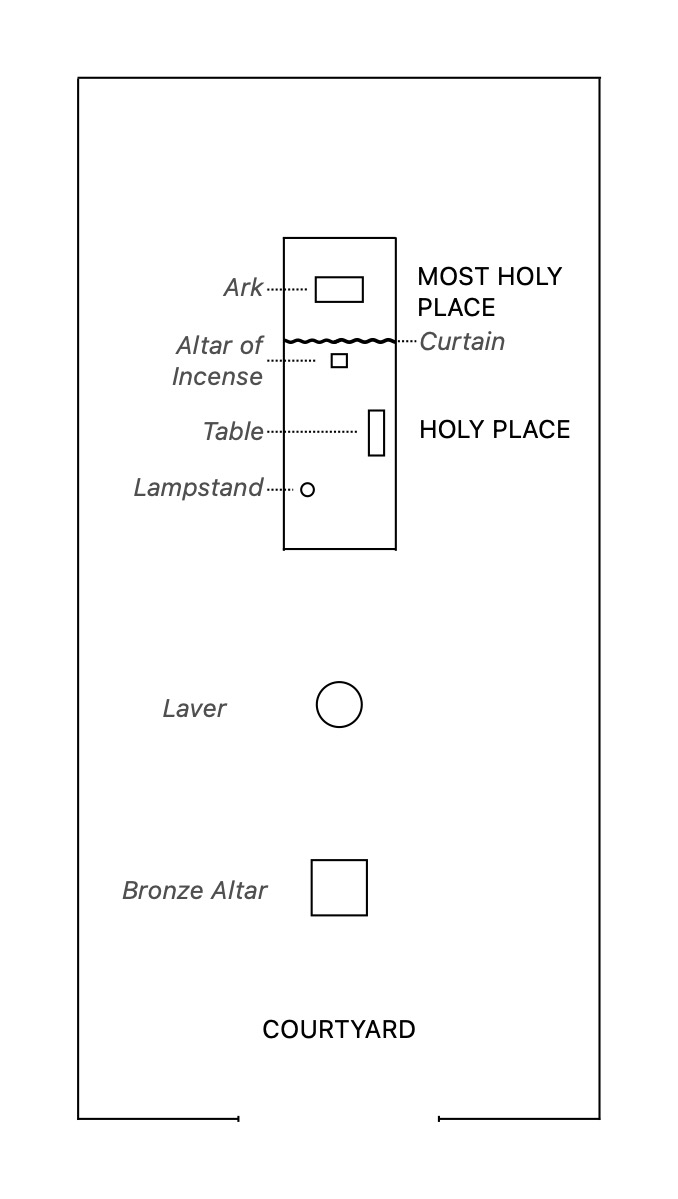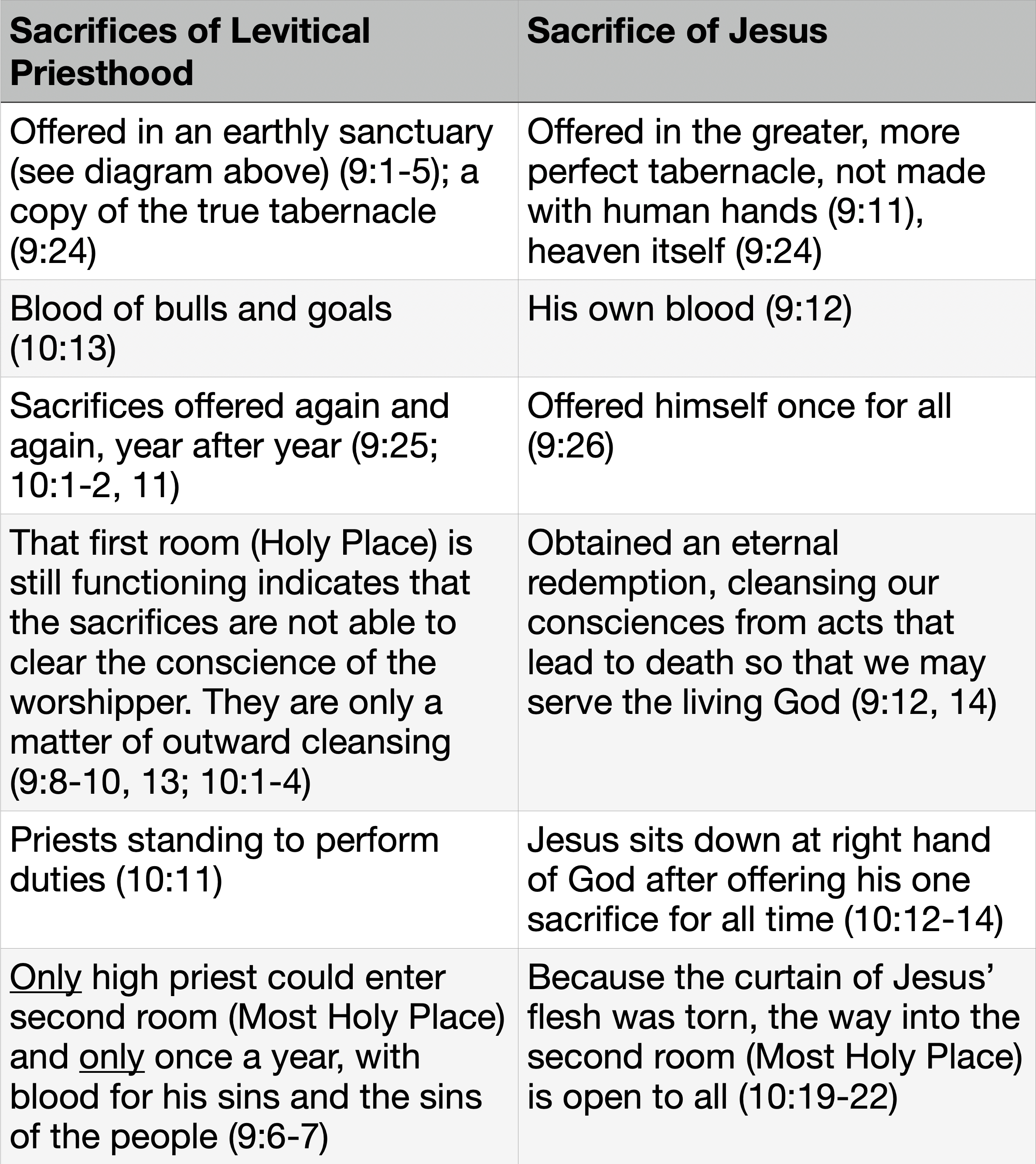Hebrews Bible Study預覽

Jesus Offers a Better Sacrifice in a Better Tent (Hebrews 9:1-10:18)
"But when Christ came as high priest of the good things that are now already here, he went through the greater and more perfect tabernacle that is not made with human hands, that is to say, is not a part of this creation. He did not enter by means of the blood of goats and calves; but he entered the Most Holy Place once for all by his own blood, thus obtaining eternal redemption." Hebrews 9:11-12 (NIV)
Context
The organization of the tabernacle set up by Moses (see diagram below) and the annualsacrifices on the Day of Atonement (read Leviticus 16) are important contexts for understanding the author’s argument in today’s passage.

Observation
Notice how the author compares and contrasts the sacrifices of the levitical priests with the sacrifice of Jesus. We have observed the following:

Interpretation
The author’s argument for the superiority of Christ over every aspect of the Old Covenant system crescendoes in today’s passage. Afterwards (in 10:19-13:25), he will move on to emphasize the response he wants his readers to make based on these truths: to draw near to God and hold fast to their hope.
Why would the comparisons made here, between Jesus’ sacrifice and the levitical ones, be considered the climax of his argument? What is the main message he wants his readers to take away from this section?
Application
Because of the perfect, once-for-all sacrifice of Jesus, our sin has been forgiven and there is no need for further sacrifice. This forgiveness is available to all who reach out to Jesus.
Do you ever feel like you need to “sacrifice” something in order to make things right with God? If you’ve messed up, do you try to “make it up” to him in any particular way? There is no need! Jesus has already done it all. Spend some time in prayer, thanking Jesus for this wonderful gift.
關於此計劃

This plan is intended as a guide to discovering the message of Hebrews for yourself! Grab a notebook to jot down your thoughts as you are led through a process of: (1) observing the text of Hebrews; (2) interpreting the original message to its first readers; and (3) applying the letter’s timeless truths to your life today.
More







